Learn Arduino IoT Cloud to create IoT applications based on the Arduino MKR1010, the Arduino Nano 33 IoT, and the ESP32.
Course last updated in December 2022
This update contains a new lecture that covers the changes to the Arduino Cloud user interface introduced in the second half of 2022.
The Internet of Things is a term that describes systems that integrate sensors, processing, software and communications.
A typical Internet of Things application uses the Internet as the backbone for communications between microcontrollers, Cloud services, and smartphones.
The Arduino IoT Cloud is a development platform and infrastructure that makes it easy to create scalable Internet of Things application.
As a development platform, it offers the technology building blocks which we can use to build our application.
It also offers the infrastructure that supports the safe operation of our application.
Who is this course for?
This course is for anyone wanting to create secure and scalable IoT applications.
You can be a hobbyist working on a home automation project, or a student working on an assignment or a teacher setting up an IoT lab in the school maker space.
You could be the founder of a startup creating a prototype for an awesome business idea, or a business owner interested in using IoT to automate and optimise your business operations.
You could be an engineer, researching a technology solution for your employer.
The building blocks consist of the hardware that we can use to interface sensors and actuators with the Cloud infrastructure. Examples of this hardware are the Arduino boards that belong to the MKR family. These boards contain communications and encryption capabilities to ensure the safety of the application data.
The development platform also offers a programming editor that allows us to compose the program that runs on the Arduino boards, and a dashboard editor for creating dashboards that can display application data and provide interactivity with the IoT application.
What are the objectives of the course?
1. Understand the concept of the IoT on the Cloud.
2. Learn how to use the Arduino IoT Cloud development platform and infrastructure.
3. Learn about the Arduino IoT Cloud concepts of Things, Devices and Dashboards, using two types of Arduino boards and an ESP32 board, with a variety of sensors and actuators.
Of course, the dashboard editor allows us to design dashboards that work in web browsers and on smartphones. This means that we can access our IoT application from any connected device.
The Arduino IoT Cloud infrastructure is what supports you application during its operation. It is responsible for interacting with the devices (meaning, the Arduino or other compatible boards), the smartphone or web-based dashboards, and any external cloud services, like IFTTT or Zapier.
What are the knowledge prerequisites?
1. You should have working knowledge of the Arduino. If you don’t feel comfortable with this, please consider completing my course Arduino Step by Step Getting Started first.
2. You should have working knowledge of the ESP32. If you are note familiar with the ESP32 board, consider first completing at least the introductory sections of my course ESP32 For Busy People.
You, as the creator of the IoT application, can create secure and scalable IoT application by leveraging your existing knowledge of Arduino programming and simple electronics. You don’t need to know anything about encryption, communications, MQTT, Wifi, or how to program a smartphone or server-side application. The Arduino IoT Cloud platform and infrastructure obscures all that so that you can concentrate on building your application.
The objective of this course is to help you leverage your existing knowledge of Arduino programming and simple electronics so that you can build your first IoT application on the Arduino IoT Cloud.
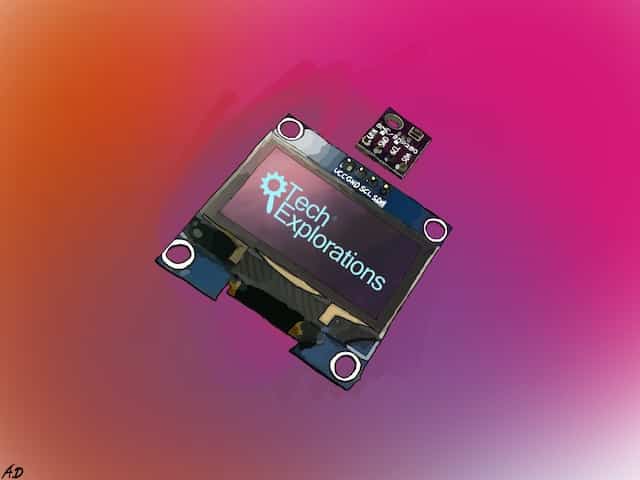
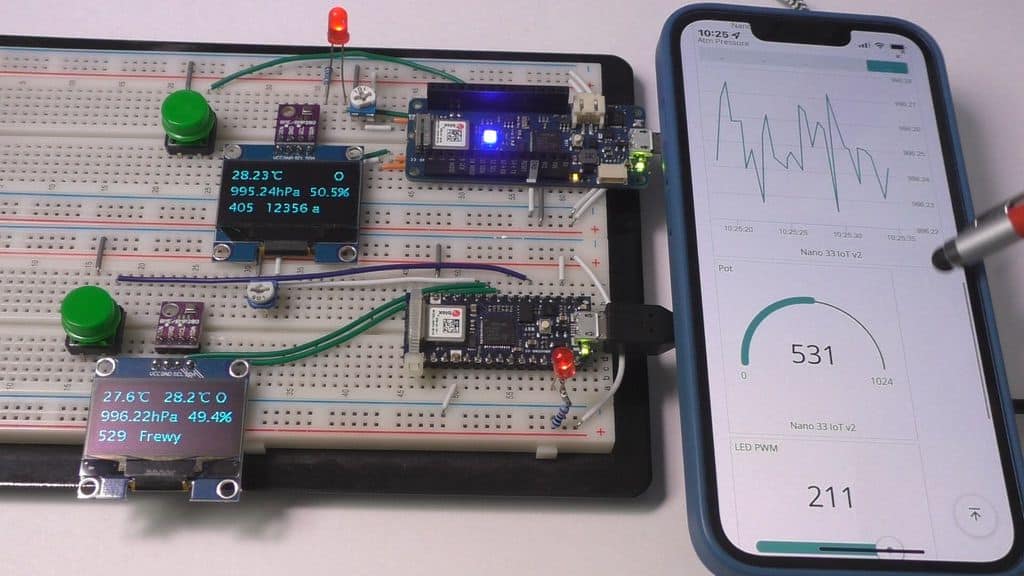
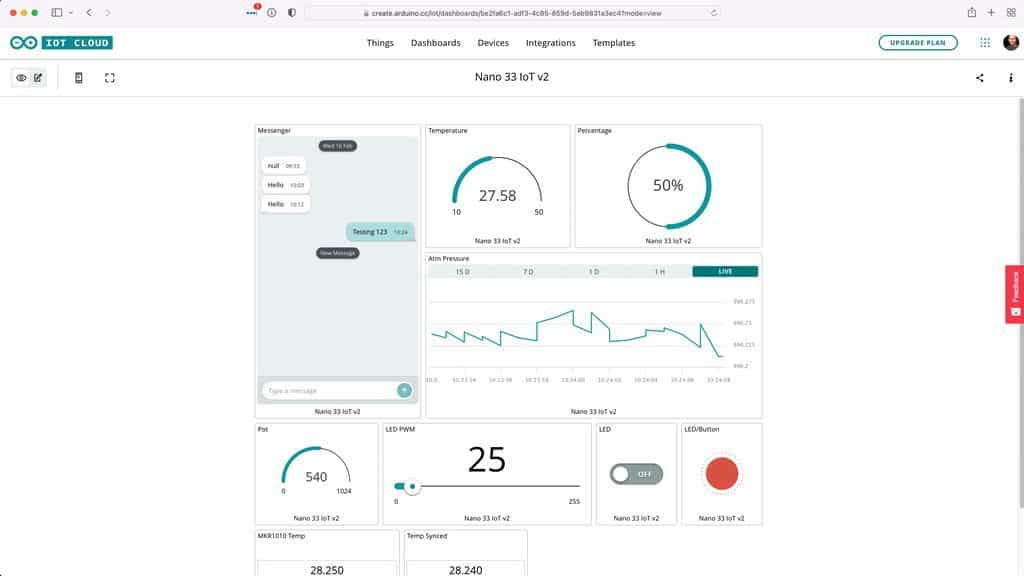
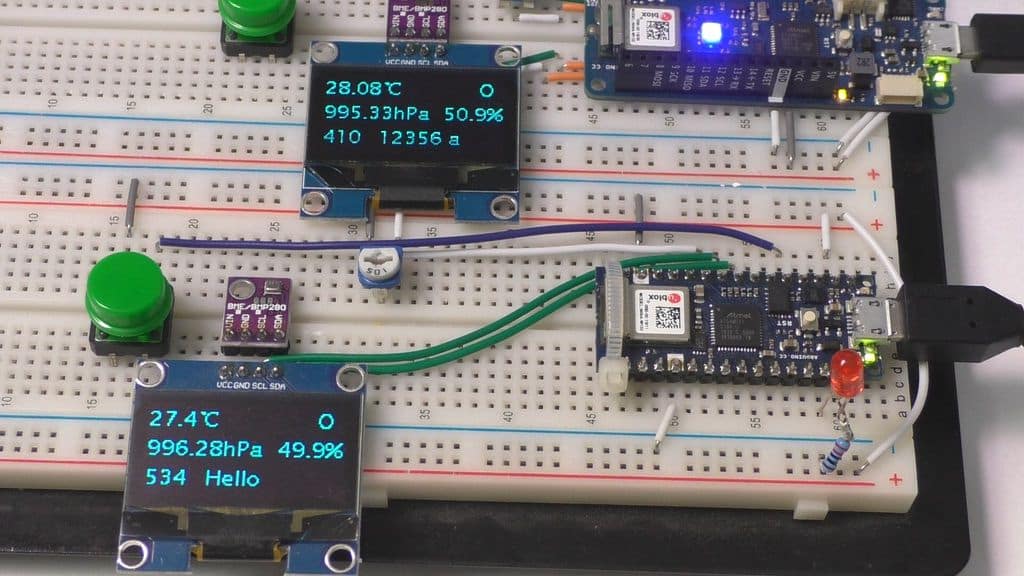
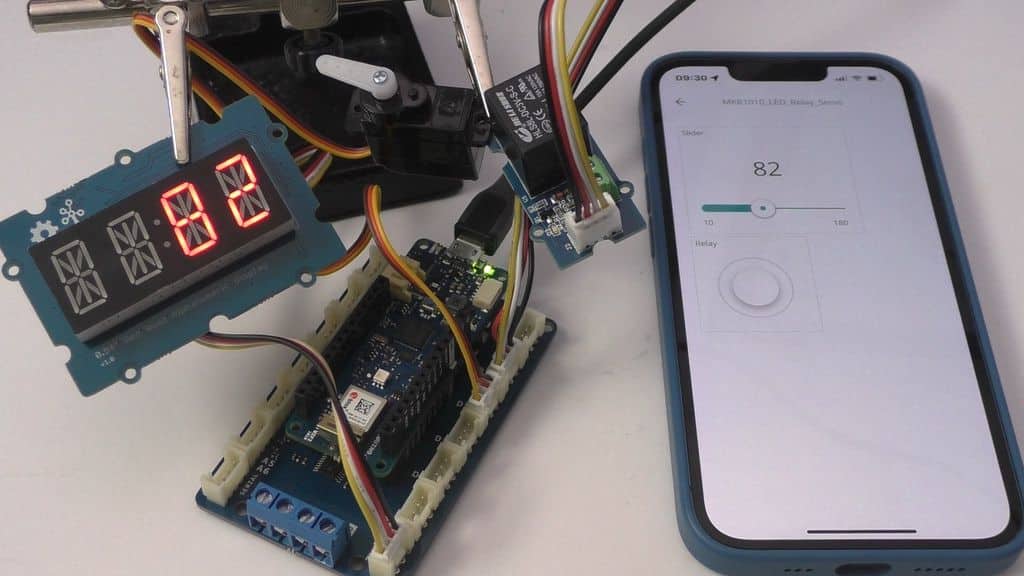
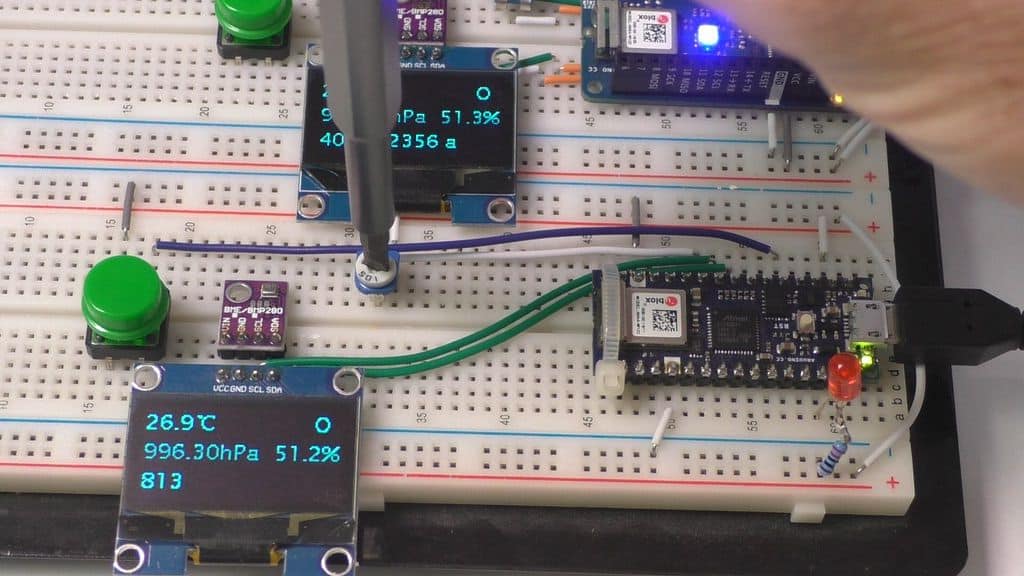
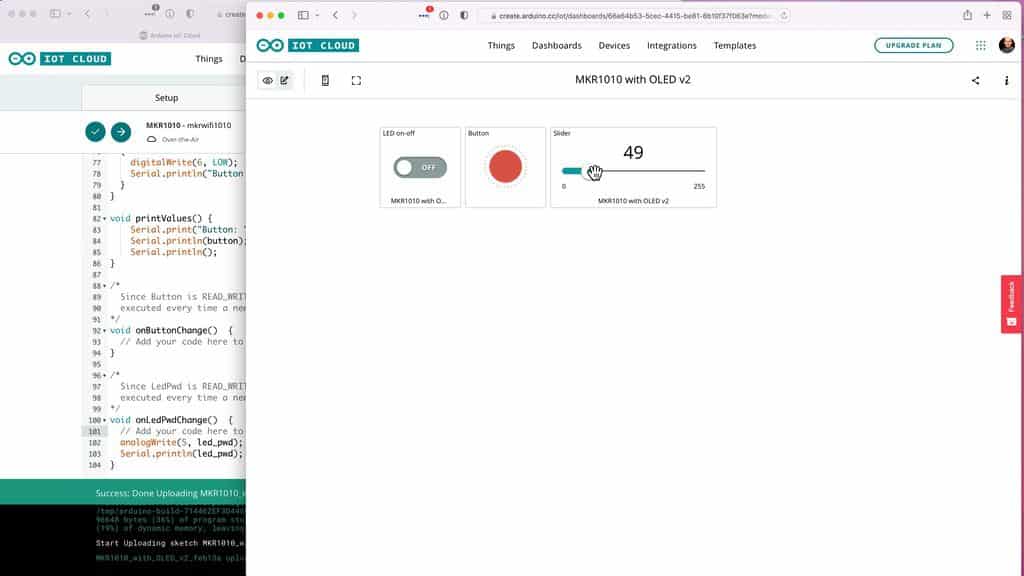
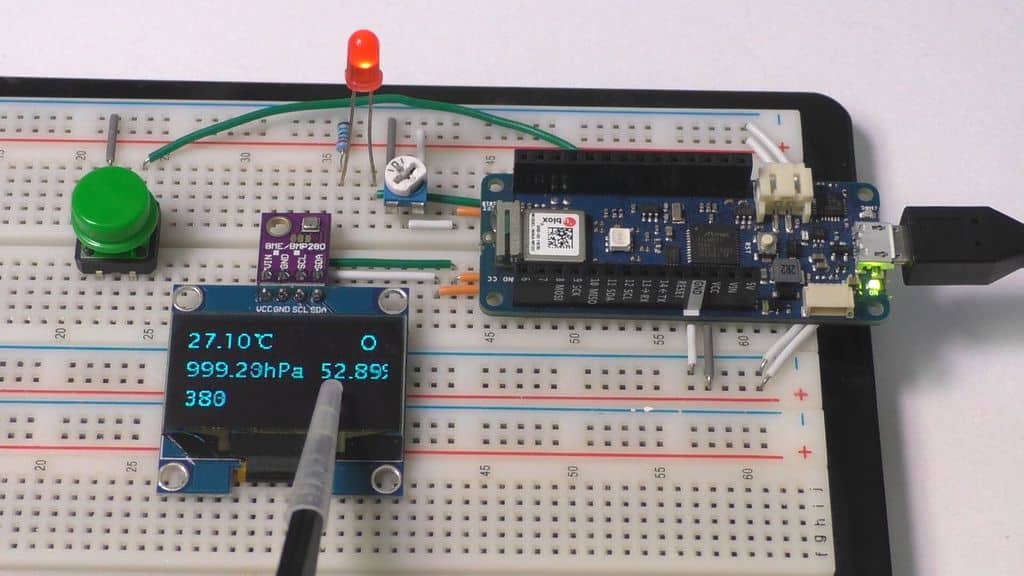
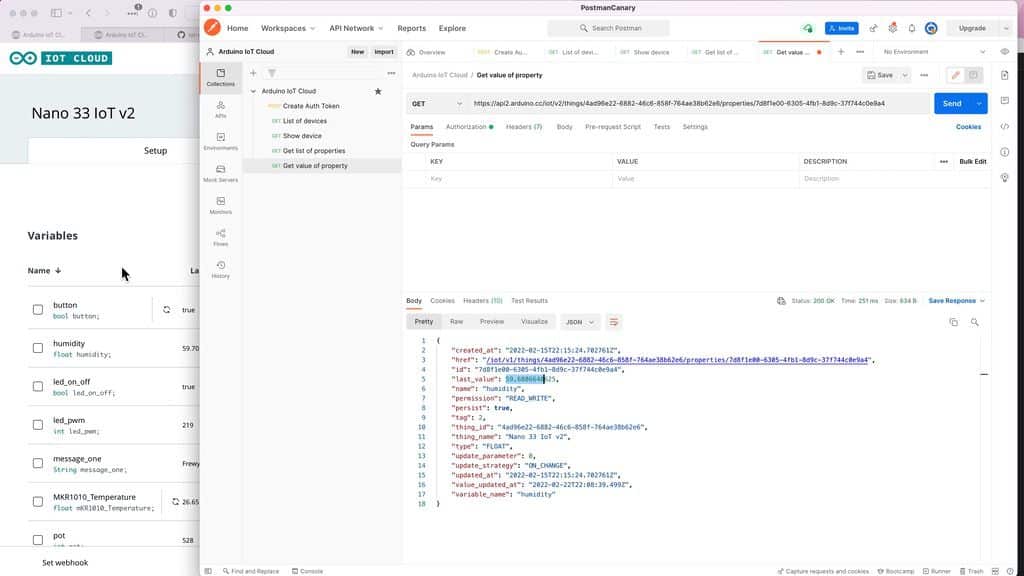
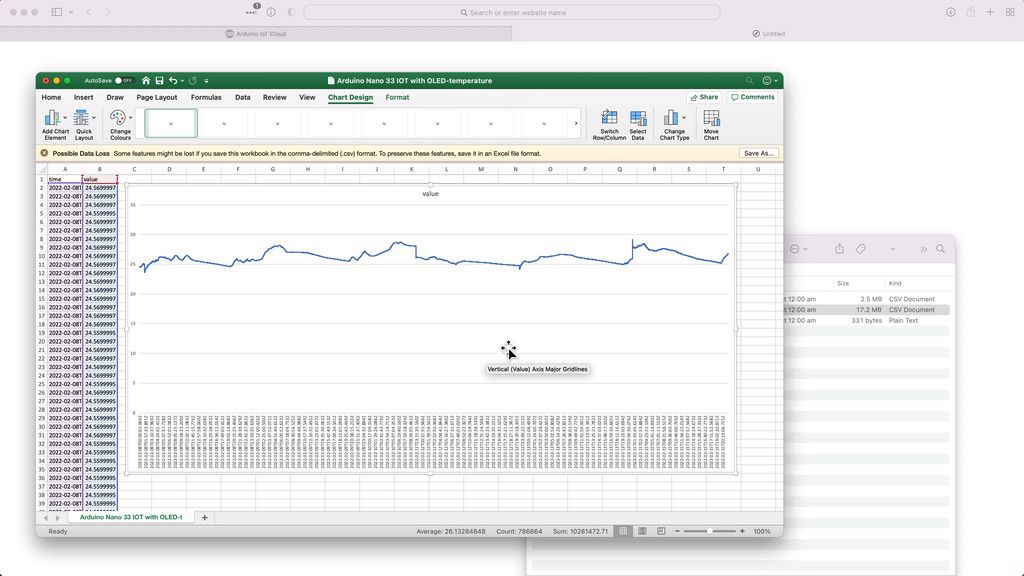
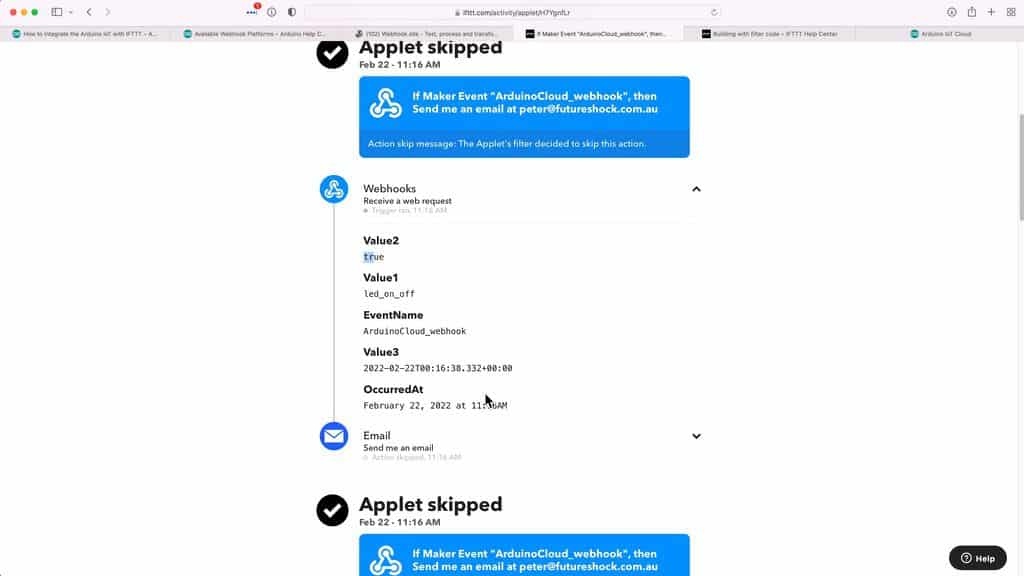
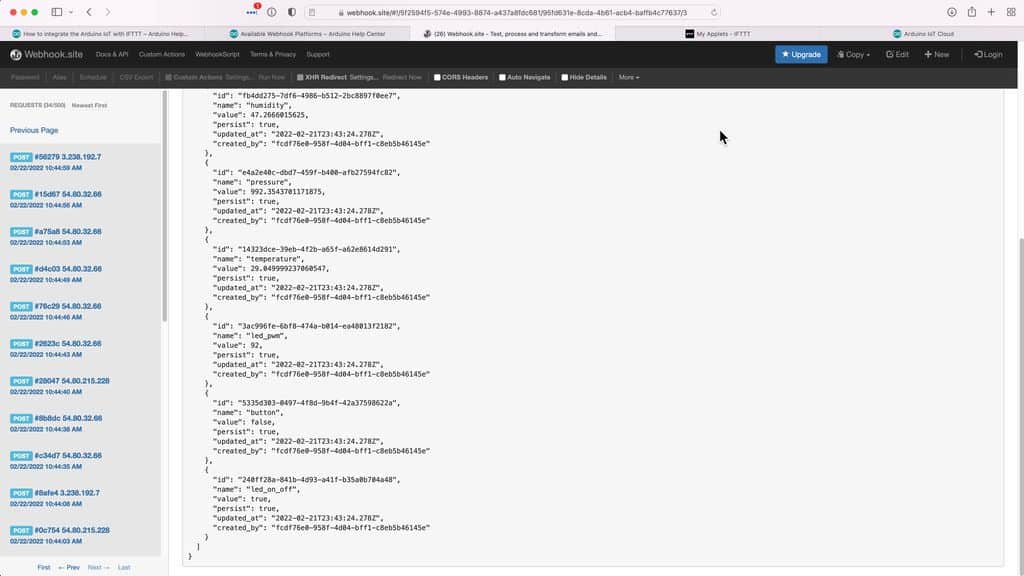
Hardware & Software
To complete this course, you will need an Adruino board that is compatible with the Arduino IoT Cloud. In the course, I use an Arduino MKR1010, an Arduino Nano 33 IoT, and an ESP32.
You will also need a few common sensors and actuators, plus breadboards and wires.
Please see a complete list of hardware here.
This course does not include any hardware! Please source your own hardware from your preferred retailer. You can find a detailed list of hardware in the course hardware page.
What is this course about?
Please watch this video to learn about the learning outcomes of this course, and how it is structured, so that you know what to expect.
More information about this course
Scripts, sketches, schematics
Required software
Required hardware
Sample lectures
Demo: Arduino IoT Cloud project
Arduino IDE vs Arduino IoT Cloud
Project demo
Here's what you're getting:
Which option is best for you?
You can enroll to our courses in one of three options: Solo, Community, and Mentor. For more information, please see this explainer page.
Solo
Once-off payment, best for self-sufficient learners on a budget.
...
Once-off.
...
Once-off.
Community
Best for the social learner: be a member of the course community.
...
Once-off.
...
Once off.
Mentor
Get one-on-one live meetings with a mentor, learn to mastery.
US$399
US$399
This button will take you to Stripe, our payments processor.
Consider a subscription
Did you know, you can get a subscription for immediate access to this and 20+ of our courses. All for a low monthly payment, cancel anytime.
Do you prefer to learn on Udemy?
On Udemy you will find all of the Tech Explorations courses at the lowest possible price.
Each course is individually priced by Udemy based on your location. We don't have control of the price on Udemy and so we can't display it on this page.
Click on the button below to open a new window where you can see the price of this course on the Udemy website.
What's in this course?
Introduction
What is this course about?
Software you will need
Hardware you will need
How to get the most out of this course
Scripts and wiring schematics
Getting started with Arduino IoT Cloud
What is this section about?
Arduino IOT Cloud vs Arduino IDE
Update December 2022: Arduino Cloud UI changes
Documentation
Demo of a simple Arduino Cloud project
Create your free account and install the Cloud Agent
Hello world with the Arduino IoT Cloud
Arduino IoT Cloud with the MKR1010
The experiment
Set up the MKR1010 device
Setup a Thing and Dashboard
Wiring
Step 1: Button
Step 2: PWM LED and over-the-air uploads
Step 3: Potentiometer
Step 4: Sensor BME280
Step 5: Setup OLED
Step 6: RGB LED with Timer
Step 7: Messenger
Test: Dashboard and smartphone app
Arduino IoT Cloud with the Arduino Nano 33 IoT
The experiment
Set up the Arduino Nano 33 IoT device
Wiring
Setup Thing and variables
Setup Dashboard
Sketch in IoT Cloud
Sync a variable between devices
Dashboard testing
Arduino IoT cloud for the ESP32
The experiment
Setup the ESP32 Dev kit device
Set up Thing and variables
Setup a Dashboard
Wiring
Sketch in IoT Cloud
Dashboard Testing
Arduino IoT Cloud recipes
What is this section about?
Specialized type example: Environmental data
Servo and relay
LED alphanumeric display
Syncing variables: Thing to Thing
Syncing variables: Device to Device
Webhooks with IFTTT
Download historic data
Over the Air (OTA) updates
Sharing dashboards
Alexa
Arduino IoT Cloud API
About this section and the API documentation
Setup and get an API token
Get a list of devices
Get list of properties for a Thing
Get the value of a property
Publish the value of a property
Get historic property data
The course instructor

The course instructor is Peter Dalmaris, PhD.
Peter has created over 20 other courses on technology education.
He is the author of Maker Education Revolution, a book on how making is changing the way we learn and teach.
He is also the host of Stemiverse, a podcast in which he discusses education and STEM with the shakers and movers of technology and science education from around the world.
Copyright 2025, Tech Explorations - Privacy
